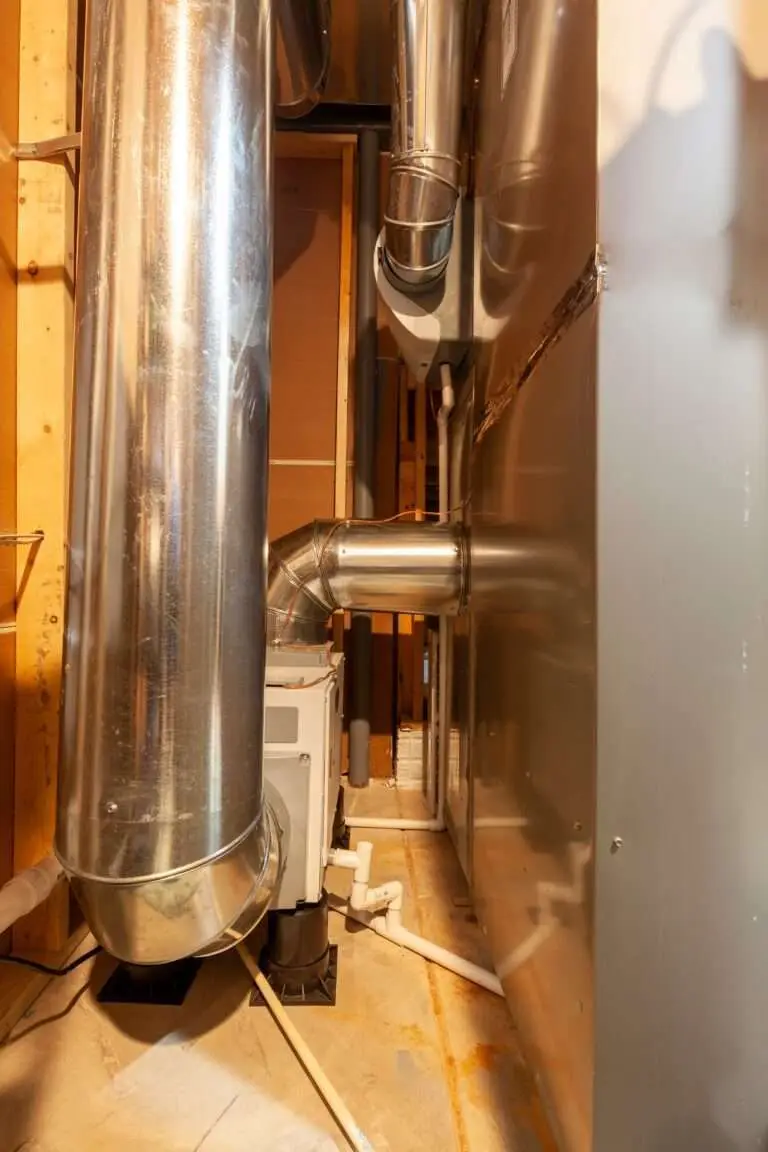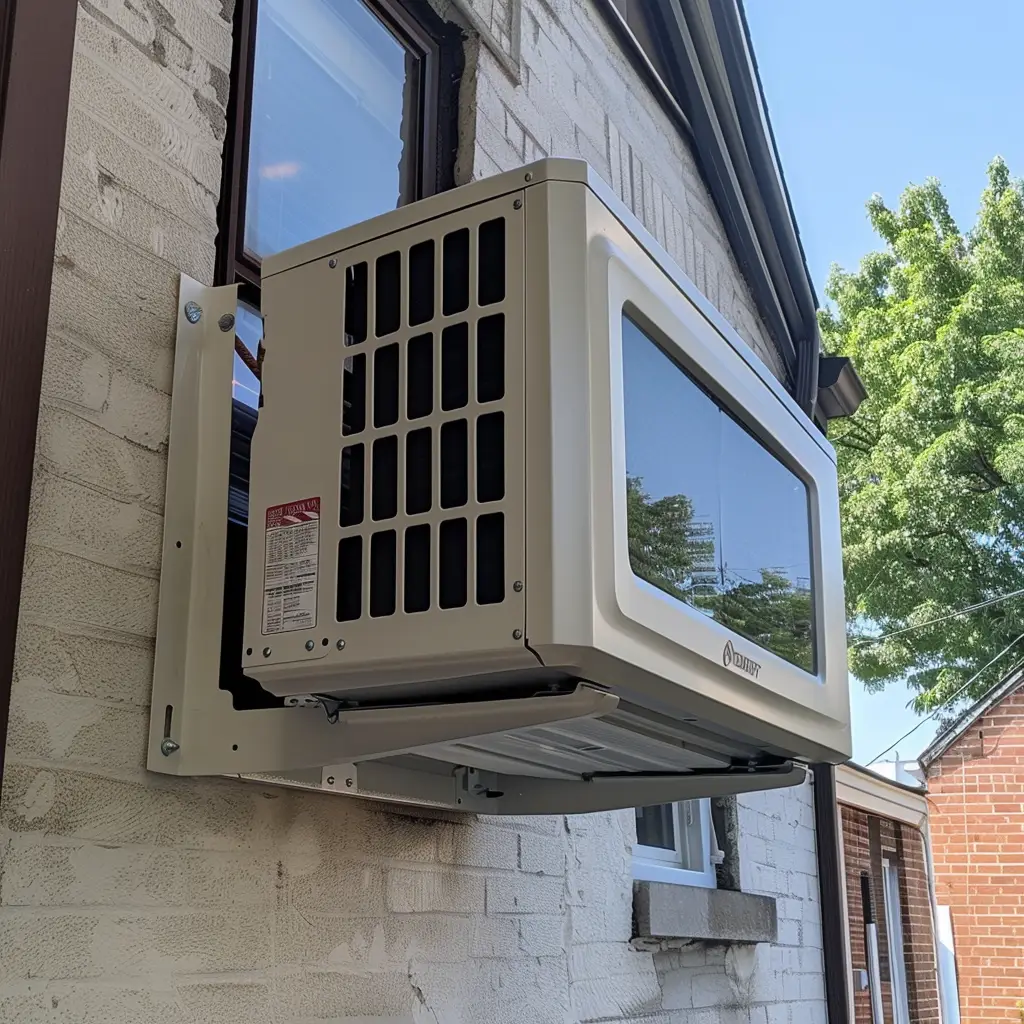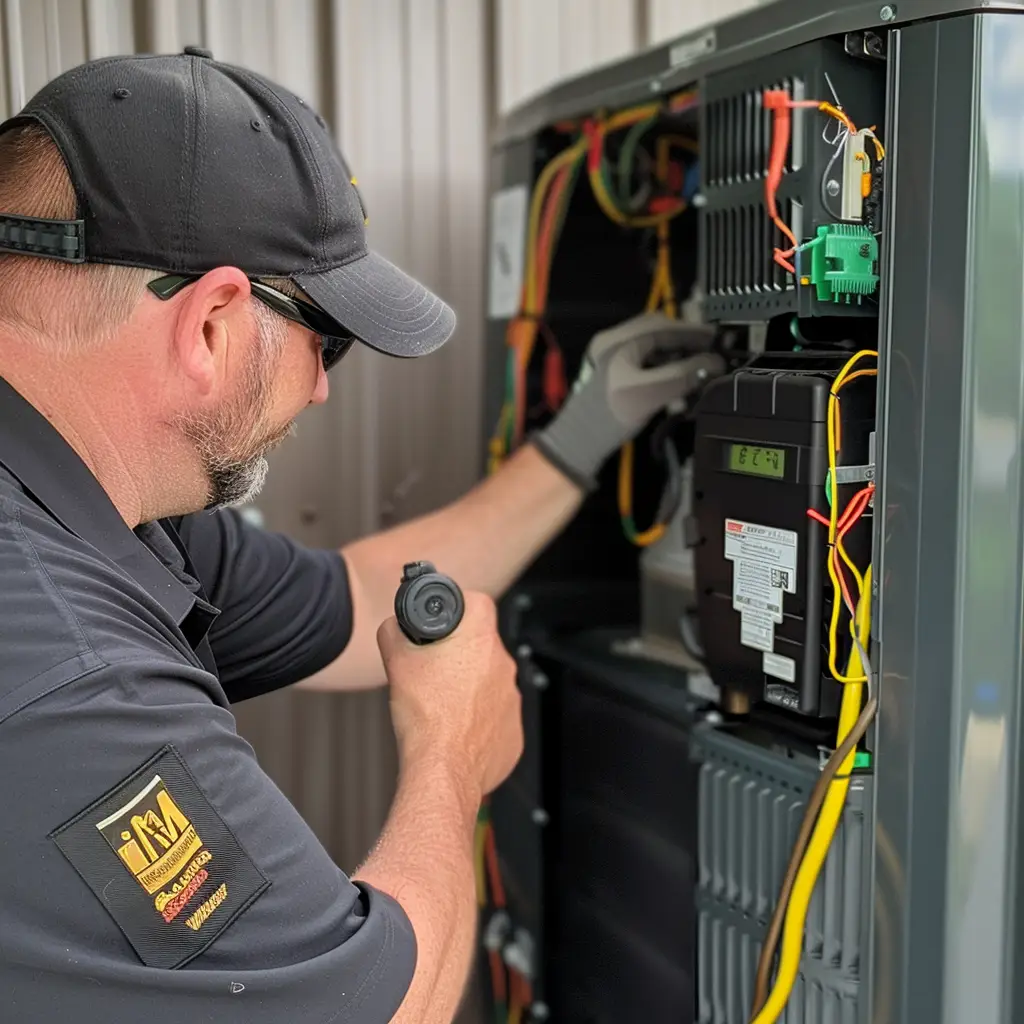During the Summer months in Toronto when humidity levels increase, a dehumidifier is a great addition to your HVAC system. High humidity can cause a variety of problems, including making your home feel stuffy and uncomfortable, promoting the growth of mold and mildew, and damaging wood and other building materials.
A dehumidifier can help to remove excess moisture from the air, improving the indoor air quality and overall comfort of your home.
What Is a Whole House Dehumidifier?
A whole house dehumidifier is a type of dehumidifier that is designed to remove excess moisture from the air throughout an entire home. These units are typically installed as part of the HVAC system and can be controlled through a thermostat or other control system.
How They Work
Whole house dehumidifiers work by pulling in humid air and passing it over a cold coil or other dehumidifying element. As the air passes over the cold surface, the moisture in the air condenses and is collected in a reservoir or drain. The dry air is then returned to the home through the HVAC system.
Why They’re Worth it
Whole house dehumidifiers are a convenient and efficient way to control humidity levels in a home. They can help to improve indoor air quality, reduce the risk of mold and mildew growth, and make the home feel more comfortable. They are particularly useful in humid climates or in homes with high levels of moisture, such as those with pools or hot tubs.
Whole House Vs. Stand-Alone Dehumidifiers
Whole house dehumidifiers and stand-alone dehumidifiers are two different types of dehumidifiers that are designed to remove excess moisture from the air in a home. Here are some key differences between the two types:
- Installation: Whole house dehumidifiers are typically installed as part of the HVAC system, while stand-alone dehumidifiers are portable units that can be placed in any room.
- Coverage: Whole house dehumidifiers are designed to dehumidify the air throughout an entire home, while stand-alone dehumidifiers are typically only effective in one room or area.
- Control: Whole house dehumidifiers can be controlled through a thermostat or other control system, while stand-alone dehumidifiers typically have their own control panel or remote.
- Capacity: Whole house dehumidifiers typically have a larger capacity and can remove more moisture from the air than stand-alone dehumidifiers.
- Cost: Whole house dehumidifiers tend to be more expensive upfront, but they may be more cost-effective in the long run due to their larger capacity and ability to dehumidify an entire home. Stand-alone dehumidifiers are typically less expensive, but they may need to be purchased for each room or area that requires dehumidification.
Do You Need A Dehumidifier If You Have Central Air?
If you have a central air system but are still experiencing high humidity levels in your home, it may be worth considering purchasing a dehumidifier. You can measure the humidity level in your home using a hygrometer or by contacting a professional HVAC technician.
When used in conjunction with a central air system, a dehumidifier can help to reduce the load on the air conditioner by removing excess moisture from the air. This can help to improve the efficiency of the air conditioner and reduce energy costs.
What Is The Cost Of A Whole House Dehumidifier?
The cost of a whole house dehumidifier can vary depending on a number of factors, including the size and capacity of the unit, the brand and model, and any additional features or technologies.
In general, you can expect to pay anywhere from $500 to $2,000 or more for a whole house dehumidifier. It is important to carefully consider the size and capacity of the unit you need, as well as your budget, when shopping for a whole house dehumidifier.
Keep in mind that the upfront cost of a whole house dehumidifier may be offset by energy savings and other benefits over the long term. A whole house dehumidifier can help to reduce the load on your air conditioner and improve the efficiency of your HVAC system, which can lead to lower energy costs and a more comfortable home.
Check out this 2 minute video by Mattioni Plumbing, Heating & Cooling to learn more about the benefits.
Factors To Consider Before Buying A Dehumidifier
There are a few factors to consider when deciding whether to buy a dehumidifier for your HVAC system:
- Humidity levels: If you are experiencing high humidity levels in your home, a dehumidifier may be a good investment. You can measure the humidity level in your home using a hygrometer or by contacting a professional HVAC technician.
- Size of the unit: Make sure to purchase a dehumidifier that is appropriately sized for your home. A unit that is too small will not be able to effectively remove excess moisture, while a unit that is too large will waste energy and may not be necessary.
- Cost: Dehumidifiers can vary in price, so it is important to consider your budget when making a decision.
- Energy efficiency: Look for a dehumidifier that is energy efficient to save on energy costs.
If you are considering purchasing a dehumidifier for your home, it is a good idea to consult a professional HVAC technician for advice on the best size and type of unit for your needs. Contact us today and we’ll help you choose a dehumidifier that will work effectively to improve the indoor air quality in your home.





